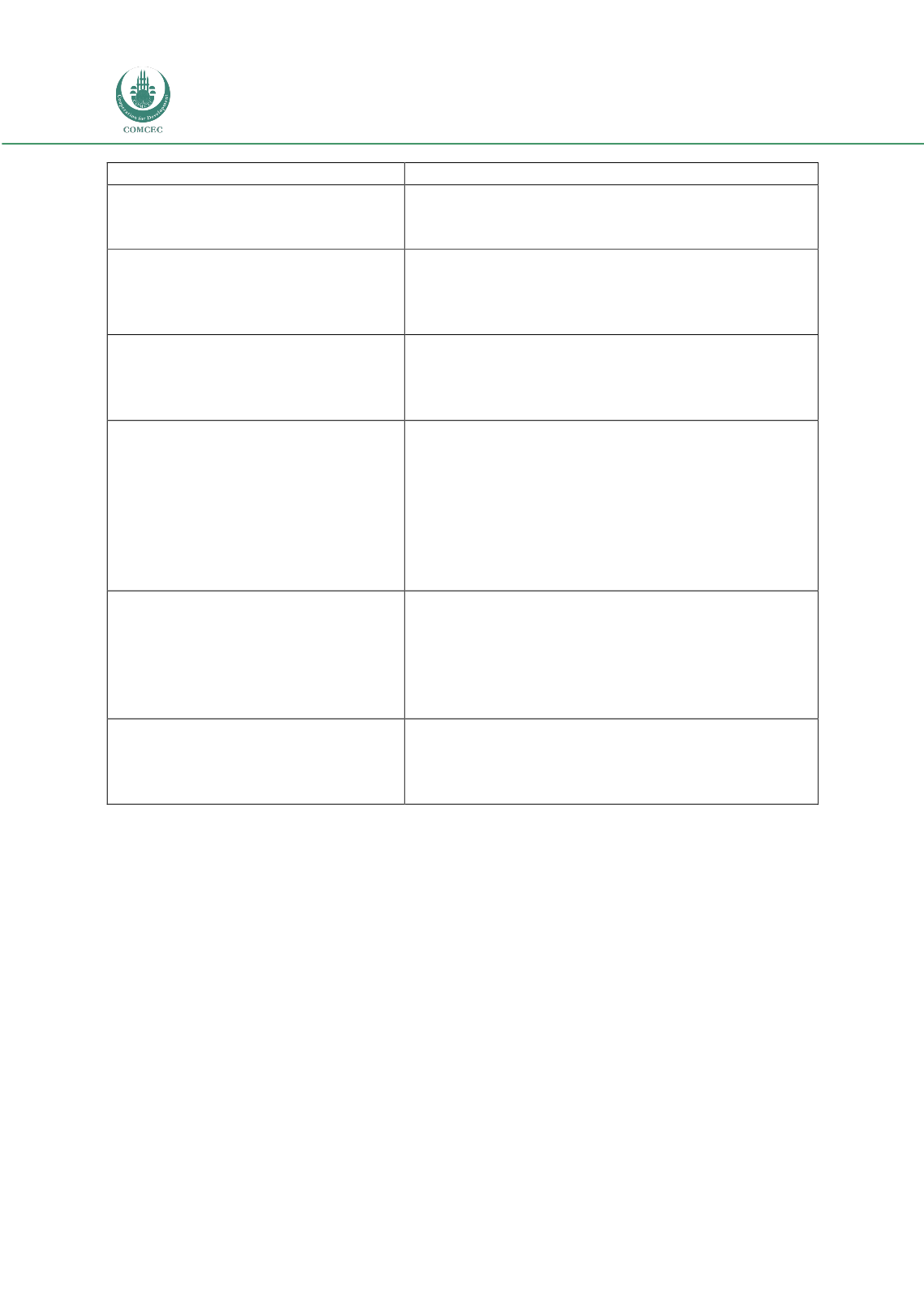

Risk Management in
Islamic Financial Instruments
126
requirements
5.
Investment opportunities in
sovereign issues
Most member countries have not yet issued sovereign Sukūk
or other Sharī`ah-compliant instruments. Two large economies
that have done so in recent years are Turkey and Indonesia.
6.
Proper understanding of Islamic
banking services and their equal
treatment vis-à-vis conventional
product
As noted earlier, most central banks treat Islamic products on
par with their conventional counterparts.
7.
A clearer understanding of the
Sharī`ah governance structures
and efforts to facilitate them
further
Some member countries have specific requirements for
Sharī`ah governance; most do not.
8.
Extension of safety net systems
such as Sharī`ah- compliant
deposit insurance
Only 31% of regulators in our survey reported having
Sharī`ah-compliant deposit insurance in their jurisdictions.
Throughout recent crises, deposits and investment accounts of
Islamic banks have enjoyed the safety nets available to all
licensed banks.
It is noted that “investment accounts” based on Mudarabah or
Mushārakah may not qualify for deposit insurance in certain
jurisdictions.
9.
Ensuring that the legal system is
supportive
Among regulators responding to our survey, 65% reported
having banking regulations for Islamic banking. Such
regulation, however, does not always ensure that commercial
laws and the overall legal system support Islamic banking.
Forty-two per cent (42%) reported having “guidance for
Sharī`ah- compliant contracts”.
10.
Ensuring tax neutrality for Islamic
financial contracts
Among regulators responding to our survey, 46% reported tax
neutrality for Islamic banking contracts. Additional focus is
thus required in the tax neutrality of Islamic banking contracts.
The matter of Zakāh treatment also calls for consideration.
Source: Islamic Research and Training Institute 2014
6.3.2 Accounting and Auditing
The seventh recommendation pertains to enhancing the implementation of accounting and
auditing standards for the IFSI. Its KPIs involve finding the percentage of members requiring
compliance with Islamic accounting and auditing standards and determining the level of
collaboration between standard setting bodies such as the Basel Committee, IAIS, IOSCO, and
IASB (
A Mid-Term Review
106). Within the IFSI, central banks and supervisors will need to
adopt and implement both the general standards, such as the Basel standards, and industry
specific standards, such as the AAOIFI. Governments, private institutions and multilateral
bodies will each have a role to play. Governments will have to facilitate the adoption of the
standards. Private institutions, who will be clients and investors to these accounting and
auditing services, will serve as to ensure accountability, as they will demand proper
compliance to Shariah. Multilateral organizations will provide international standards and

















